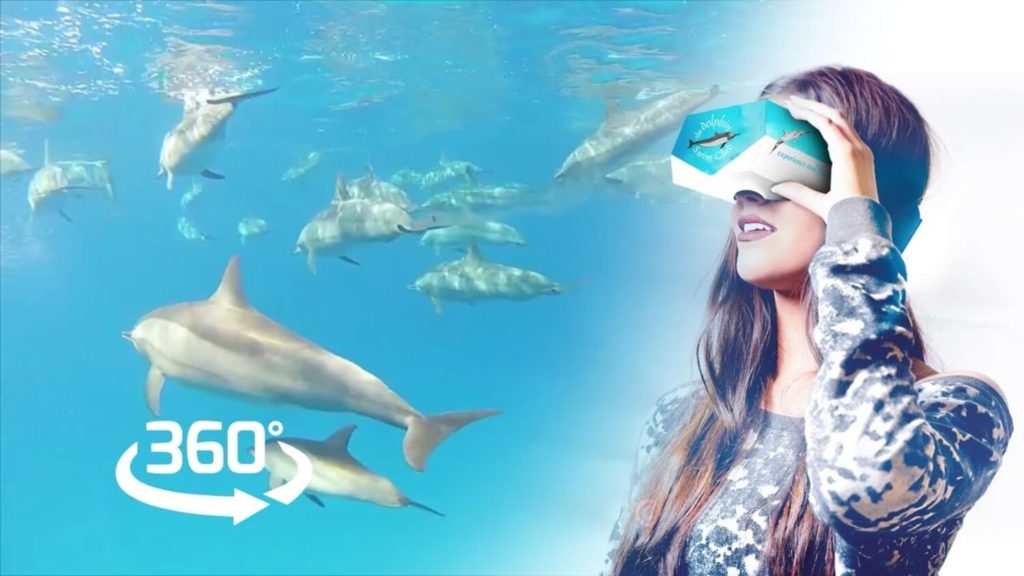A virtual reality experience in Northampton offers cruelty-free swimming with dolphins.
New social enterprise VR Therapies launched the program in May. It is a world-first concept, combining four hydro pools with virtual reality (VR) headsets. This allows wearers to experience swimming with dolphins and even encourage the computerized animals to play.
This set up makes such therapies accessible to disabled children and adults unable to take advantage of traditional therapies. According to VR Therapies founder Rebecca Gill, a community learning and disabilities nurse, medical VR is already available in hospitals and has yielded “amazing results.”
“Our goal is to bring VR therapies to those who would benefit most but are least likely to access it,” said Gill. “From supporting children through chemotherapy or physiotherapy, to improving social and behavioral difficulties in autism – as well as reducing levels of pain, stress, depression, and anxiety.”
In addition to being inaccessible, many people consider swimming with captive dolphins unethical. A Virgin Holidays customer survey found that 92% of respondents prefer to see animals in their natural habitat. For its Swim With Dolphins Experience, VR Therapies was recently awarded a PETA “Proggy Award.”
“My passion is bringing innovative therapeutic experiences to those who need them the most,” Gill told PETA. “By using virtual reality instead of imprisoned animals, we can help prevent dolphins from being kept in captivity, conserve their natural habitats, and raise awareness of the plight of captive marine mammals.”
Dolphins and Captivity
According to the Dolphin Project, captive dolphins experience unnatural and unhealthy living conditions. Many dolphins endure unfamiliar groupings, cramped environments, food deprivation, and bare surroundings.
In the open ocean, dolphins are social and energetic animals, traveling and speaking with their families. A pod of wild dolphins can travel up to 100 kilometers a day.
They can communicate over vast distances using sonar, which bounces off the walls in captivity. This can cause depression, ulcers, and premature death.
“VR Therapies knows that dolphins are sensitive, highly intelligent animals,” says PETA Director Elisa Allen. “[They] belong in the open ocean, not imprisoned in a tank or forced to interact with humans in contained waters.”


